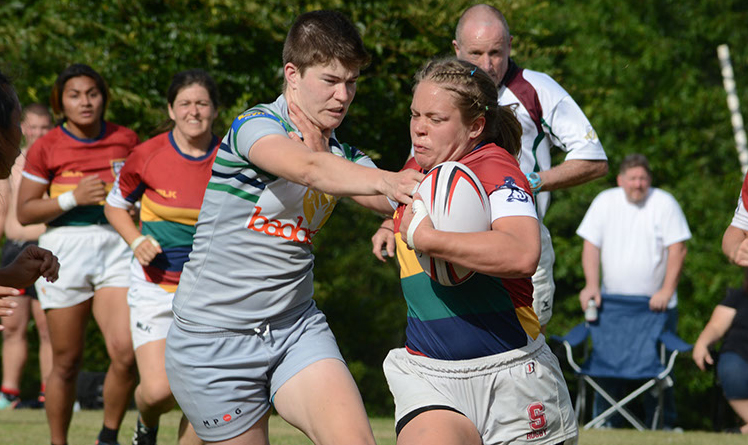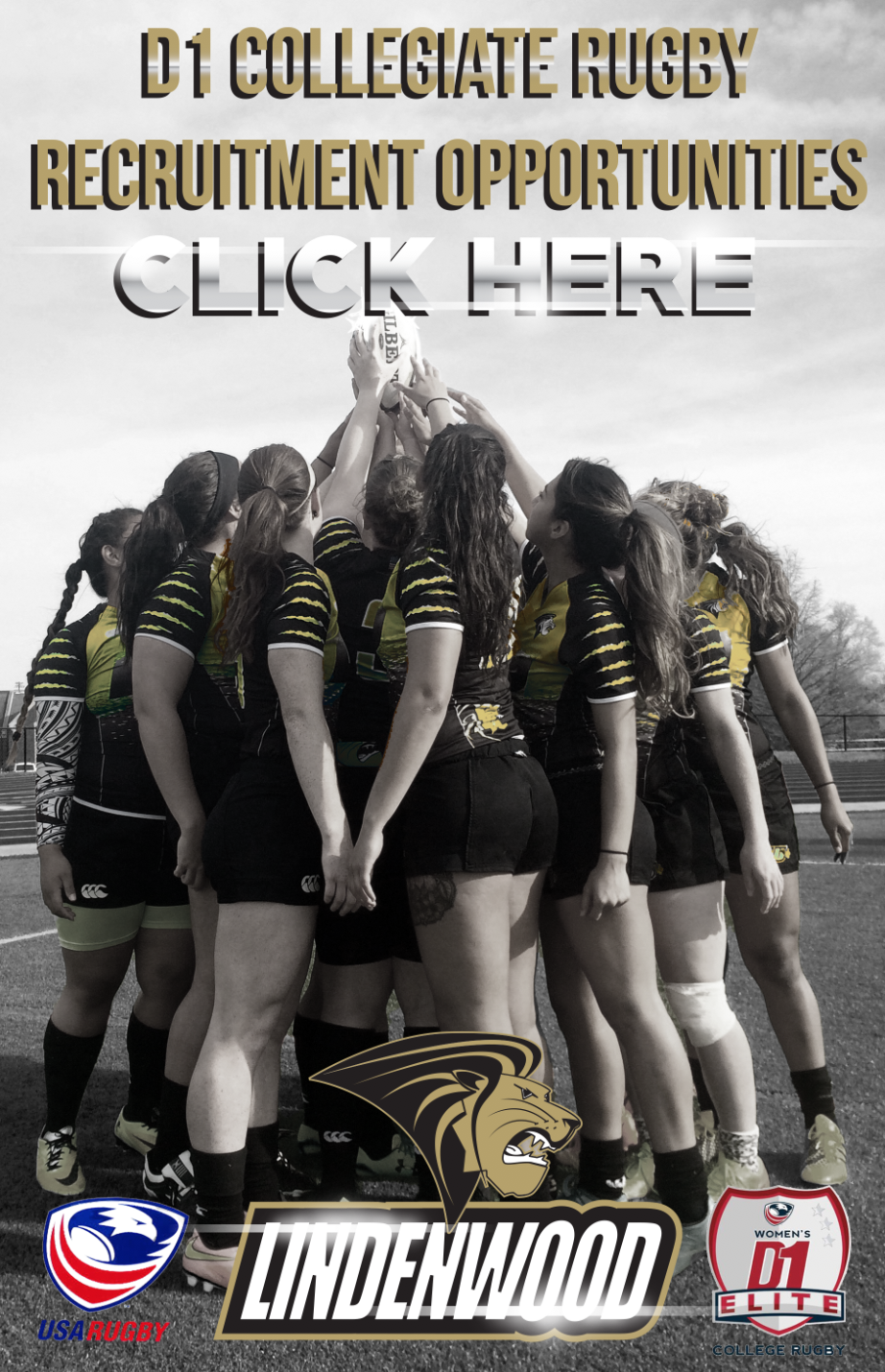
Seattle and ORSU advanced to both PNW qualifier finals. /// Photo: Will Mahoney-Watson (see more) •
The Roy Lucas 7s served as a mini-preview into some of the West’s best club 7s teams, several of which will feature at nationals Aug. 13-14 in Commerce City, Colo. But it also unearthed some issues with the national seeding, which will eliminate not just teams that can play at the championship level but should play at the championship.
Saturday’s tournament served as the Pacific Northwest’s final qualifier, and Seattle rallied from a second-half deficit to defeat host ORSU in the title match. Pacific South’s San Diego defeated Frontier’s Glendale for third.
“I expected Seattle to have good speed and structure,” ORSU 7s co-coach Nick Cutrell said of the Can-Am 7s final’s rematch. “In the final they were able to use their speed to take advantage of some mismatches, which led to breakaway tries. Though the result of the final wasn’t desirable, our ladies did a great job of sticking to structure, getting through phases, and retaining possession. I really like how our ladies match up against Seattle. Our ability to starve them of possession keeps us on the front foot and leaves their defense scrambling.”
Cutrell pointed out Molly Luft as “our team’s heart, always empowering others with her positive communication and leading by example with smashing hits and fantastic offensive vision.” Paris Hart, Rachel Johnson and Beckett Royce led in the way of physicality and control the contact zone, while Zoe Wilson, Krystal Franklin, Luft and Anna Symonds injected speed and quick support. Cutrell also highlighted the team defense, which remains connected and forces opponents to take contact and go through phases.
Seattle did an excellent job overcoming a two-try deficit in the second half to win the Roy Lucas 7s and is closing in on the form that led the team to the 2015 national final. The next step for ORSU and Seattle is the July 30 Pacific North championship, where the top NorCal teams await.
“Having the ability to play San Diego, Berkeley, Glendale and Seattle in one weekend was a great opportunity,” Cutrell enthused. “All four of those teams are playing champagne rugby at the moment. Having the final be ORSU vs. Seattle in a tournament with such great competition makes me very proud to be playing [for] the Pacific Northwest. We will certainly be going into the NorCal competition with confidence and a chip on our shoulder.”
That chip is especially heavy for ORSU, which missed out on last year’s national championship. That quest to Colorado has become even harder this year, as the Pacific North’s seeds have been reduced from three to two.
Only the Pacific North and Mid-Atlantic had three seeds last year, but the former placed its three teams in the top five, while the latter finished 6th, 11th and 13th. In other words, if one region had to drop a seed, then it stands to reason that it be the MAC. With that said, if a region takes three of the top five places at nationals, then that translates to, “Our region is strongest,” and its berths to the championship should reflect that.
Curiously, one of these freed seeds went to the South. Its 2015 rep, Orlando, finished 15th last year. This year, while Florida did hold a state-wide series to name its two South champ reps, Charlotte took the uncontested spot from the Carolinas, and the True South isn’t sending a team. The South has three teams competing for the two seeds to nationals. It has the same amount of seeds as the Pacific North, which includes NorCal and the Pacific Northwest.
Determining seeds is a controversial process, especially when it comes to women’s club 7s, because there isn’t uniform popularity throughout the U.S. just yet. So while relying on the previous year’s results is helpful in determining how many seeds should be allotted where (half of last year’s field will likely return in 2016), those stats need to be balanced with awareness of what has truly changed in the last year.
Some sensitivity exists, certainly. Take the Red River, for example. ARPTC, a National Development Academy, entered its first club 7s national championship last year and won it all. If the region only receives one seed going forward and ARPTC continues to participate, then that could have a stifling effect on Red River teams pursuing national qualification. If and when an academy-only championship evolves, then the seed allotment would need to be revisited.
It’s clear that “growth” is on USA Rugby’s mind – reference the Frontier and Hawaii regions’ automatic, uncontested berths, for example – but the question is whether nationals is the place to do it, especially if those efforts punish deserving teams that have been long invested in competitive 7s. A possible solution? Maybe integrate at-large bids for which regions and teams may lobby.
This issue is coming to a head as the Pacific North championship approaches. Four excellent teams with history at nationals – Seattle, ORSU, Berkeley and Life West – will be playing for two seeds, and the exclusion of any of them will weaken the field.
For reference: Compare the below 2015 club 7s championship finishes with this year’s seeding:
2015 Final Standings
1. American Rugby Pro Training Center (Red River)
2. Seattle (Pacific North)
3. San Diego (Pacific South)
4. Berkeley (Pacific North)
5. Life West (Pacific North)
6. NOVA (Mid-Atlantic)
7. Chicago Lions (Midwest)
8. Youngbloodz (Midwest)
9. New York (Atlantic North)
10. ICEF (Pacific South)
11. Scion (Mid-Atlantic)
12. Rocky Mountain Squids (Frontier)
13. Philadelphia (Mid-Atlantic)
14. Hawaii Harlequins (Hawaii)
15. Orlando (South)
16. Boston (Atlantic North)
 0
0 0
0